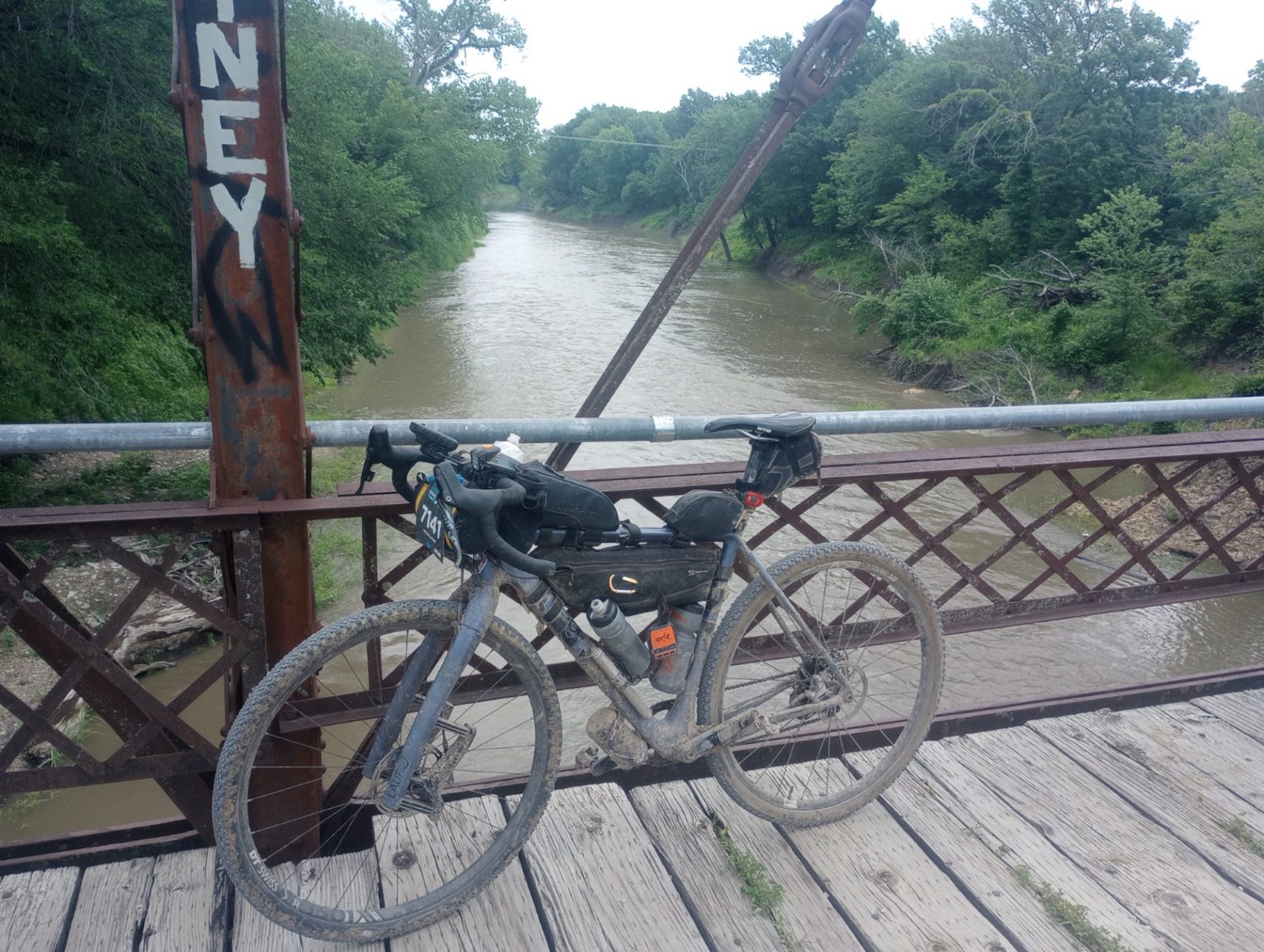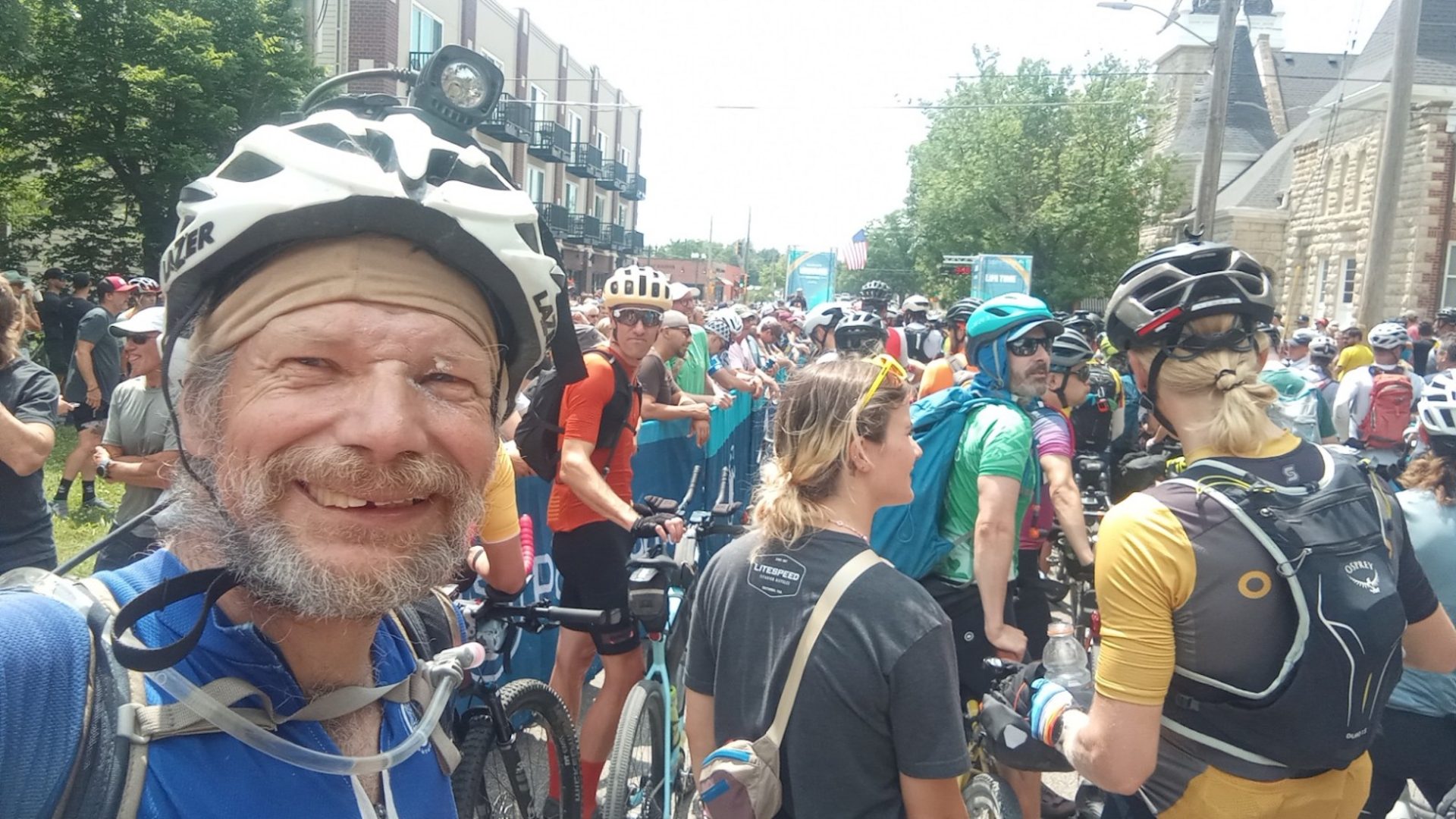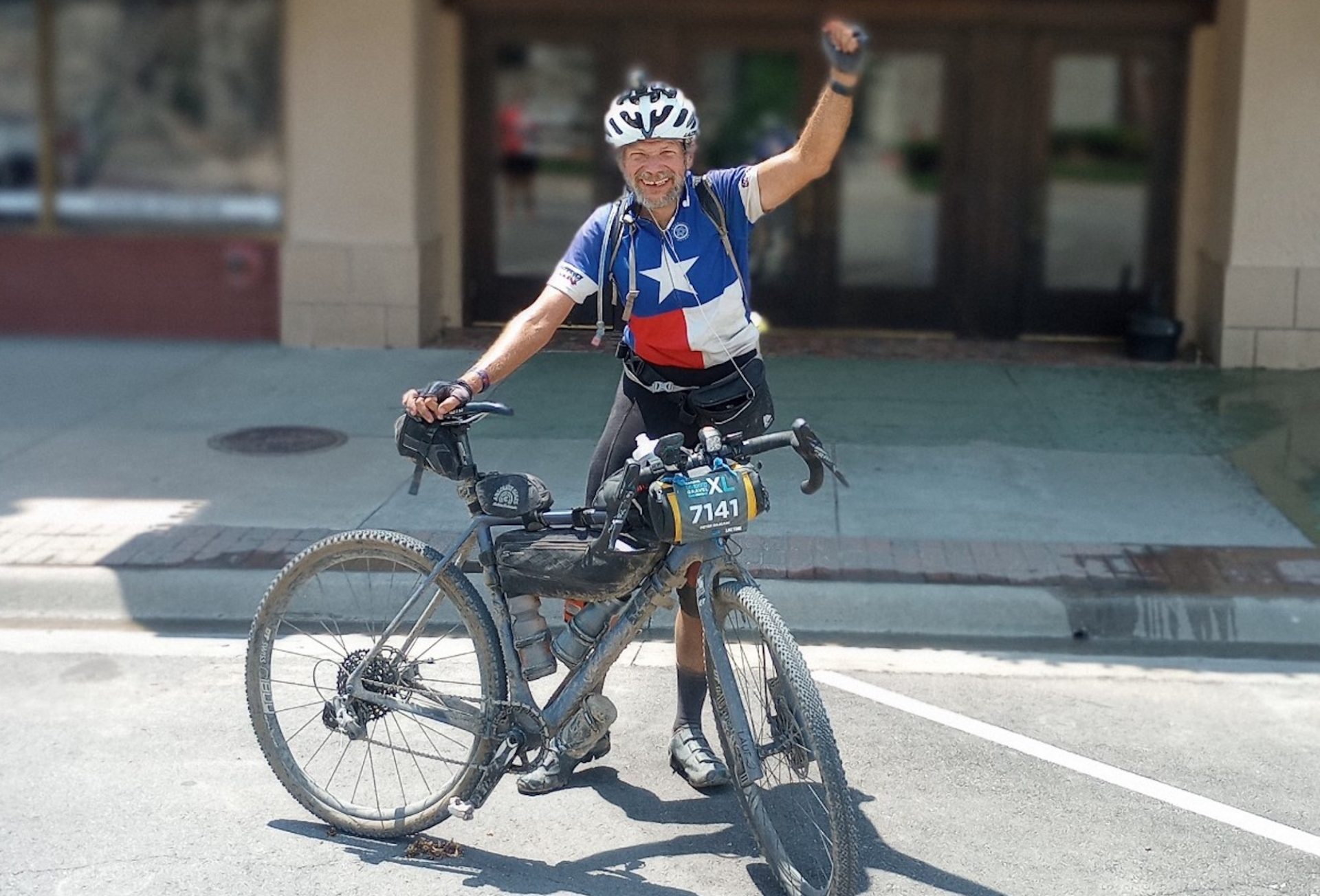The men's 350-mile XL winner at this month's Unbound 2023 was a 29-year-old American called Logan Kasper. Finishing in 22 hours and 54 minutes, he beat his next closest competitor by nearly two hours. Unless you're a keen follower of Unbound or the gravel and ultra racing scene, it's unlikely you heard about Kasper and his impressive achievement.
You may have heard, however, about the man who unofficially finished last, well outside of the time cut and taking more than double the time that Kasper did. Why? Not because he's a Peter from Slovakia, even though he is, just not the Joker-tatted, green-haired road racer. You've maybe heard of the other Peter from Slovakia because finishing these epic events are what they are really about. The much-maligned 'spirit of gravel' has its competitive roots in riders versus the course, not whoever happens to cross the finish line first.
After the gravel pros had crossed the line, stood on the podium and the Unbound circus had packed up and left the town of Emporia, Kansas, for another year, 60-year-old Peter Rajcani was still riding and luckily, when he arrived a day later, there were still some people to give him the welcome he deserved.
After the dust had settled (and Peter had got some sleep), we caught up with the final (unofficial) finisher of Unbound 2023 to see what insights we could gleam from one of ultra's most determined riders.
First off, how did you manage to ride for 48 hours?
Well, honestly, I didn't ride for 48 hours. I managed to sleep about three hours on the second night. And so probably the total riding time was probably 36 hours. The rest of the time was spent at the rest stops and cleaning my bike, which actually took more time than I thought it would. Especially because [I rode] a lot of these mud sections at night.
Now, what's specific about Kansas mud that makes it different, and I've done other muddy events before, is the mud sticks to the bike in Kansas really badly so I started rolling and the wheels start rolling and packing the layers of mud and soil on and eventually it will stop your wheels from turning, stops you from moving forward. That's the most frustrating part. I tried to carry my bike, it was a little bit heavier because I had some load. So it was hard to shoulder it because I had a frame bag and bottles in there. There was not much room to do that. So pretty much most of the time I pushed it so as I said my moving time, I can check my Strava ... it was 34 hours 24 minutes, so 14 hours not riding the bike.
What makes you tick as an ultra athlete?
Oh, that's a good question. I think firstly it's trying to accomplish something that I can push myself [toward] and push myself to my limits. I like that kind of accomplishing. This was a long-term goal of mine, to get the 350 done and so that's one of the other things is: I do like adventure, I do like riding gravel, being outside I really enjoy cycling as my main activity and I do it a lot. I just have a drive; when I want to accomplish something I go for it, I just don't want to quit. I didn't want to quit and call it a day [at Unbound 2023] just because it's so difficult to get into the race with all the preps and arrangements I had done to get in and all that – even though I will not [have my result recognised] because about halfway through it became clear to me that I wouldn't make those cuts because I was just not moving fast enough to get there since there's no immediate cut off point. For the 200-mile race they have a cut off at mile 150 or something, there is nothing like that at 350, they just have a finish line cut-off. So I was like well, let me just do that.
Do you prefer supported or self-supported?
I live in Texas (I moved here from Slovakia) and the Race Across Texas I really enjoy because of the different scenery going from east to west, a 1,000-mile race. I did it twice with support as a stage race back in 2009, which gave me enough knowledge to do it on my own because I already knew what I was getting into when I was self-supported. Self-supported is more difficult than doing it with support of course.

I like the unsupported part of it, I like the freedom, taking your gear and just going for some distance and then resting. With Unbound there was no camping part unless you count me sleeping in a post office for three hours. Supported moves you faster but you have to have somebody to support you. And usually either you have to pay someone or have to have somebody on the way.
In some cases, supported is more convenient. And it's easier because you don't have to carry as much but then you have to make those certain checkpoints at certain times. For example at the Race Across Texas, you have to finish each stage, which was about 120-150 miles, to get to your gear. So if something comes up and you're not able to get there then you don't get to your stuff.
Then there are races that have aid stations where you can pick up food and go, and you can go faster versus partially supported where they just carry your night gear and you're on your own during the day. Sometimes you have more freedom to adjust, to adjust to conditions when you're self-supported because you have everything with you. The challenge is you carry more gear.
How much training do you do?
Sometimes it's difficult. I try to kind of combine riding on a trainer when I have less time with riding outside and try to go out on the weekend for a longer ride. Usually I'll use a full day on a Saturday and I usually ride gravel because I have more time or do a really long road ride. So one or the other. Let me look at my Strava ... yeah, it shows about 30 hours per week.
What's next for you? More races in America? Have you ever done any races in Europe?
I do want to try to do the Tour Divide. Probably next year. I hope I'm gonna make it happen. That's one of my big bucket list things to do. That's the race I really would like to do. I probably will do it as more of a tour than a race. But yeah, I like unsupported part of it where you can just camp and be self contained.

I have not raced in Europe, I want to try it all but right now my focus is on Tour Divide. And once I have that one down I know there are a couple of really interesting ones in Europe. I'm not sure which one I would pick but yeah, there's no particular reason but I have not tried anything outside the US yet.
You got into cycling, and specifically ultra cycling, later in life right?
I got into cycling late. Back when I was a teenager I really didn't ride much. I actually started riding in my late 30s, early 40s. Then it took me a while to gain the fitness to participate in these events. I've been doing the ultra events for probably the last four or five years.
I think my first one was the 2014 Race Across Texas and before that I did a 24-hour mountain bike race. That kind of prepared me to push myself without sleep and just push my body through difficulties and all that and kind of helped actually. But the biological clock is there so I know the fitness I have isn't gonna last me forever. So that's why I'm trying to get these bucket-list events out of the way earlier than later. I'm creating a plan for that. I'm not shooting for winning or anything, for me to complete it is accomplishment now. Just to finish.
What's the most important advice for someone looking to get into ultra?
Be prepared for any condition. Don't get caught unprepared. So I carry some extra gear like rain gear and stuff like that. Or something in the case of emergency. Another is just to stay positive, don't get discouraged when things are get hard or like we had an issue with the weather and mud at Unbound. Know your limits. Know how far you can push yourself. You don't want to get stranded somewhere in the middle of nowhere where you don't want to be and then get hurt. A friend of mine who was training a lot last year he broke his ankle when he crashed at night. Just be aware of what your limits are and then take the rest if you need to take a break. Also the mental [side of things] because I assume that most people put enough physical training in, the other thing is your head. Pushing through is like ... having that mental state of mind, a positive state of mind, is very important. That would be my advice.

Did we do a good job with this story?



